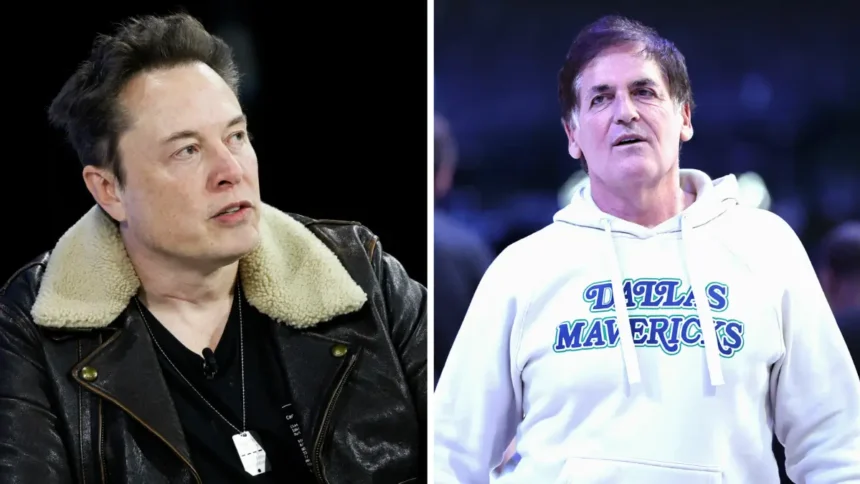DEI Debate Heats Up: The worlds of business, technology, and social advocacy collided spectacularly this week as two of America’s most prominent billionaires, Elon Musk and Mark Cuban, engaged in a public spat over the principles and practices of Diversity, Equity, and Inclusion (DEI) in the corporate sphere.
This dispute, which unfolded on the social media platform X (formerly known as Twitter), has ignited a broader conversation about the role and effectiveness of DEI initiatives in American companies.
The Onset of the Debate
In a recent online exchange, Elon Musk, the owner of X and CEO of SpaceX and Tesla, criticized DEI initiatives, labeling them as “literally the definition of racism.” This provocative statement prompted a swift response from Mark Cuban, owner of the NBA’s Dallas Mavericks and a well-known figure on the reality TV show “Shark Tank.” Cuban defended DEI, arguing that broadening the pool of job candidates to include as many people as possible doesn’t negate hiring based on merit.
He emphasized that diversity means expanding potential candidates widely and hiring the best among them, a point he reasserted in subsequent posts and debates.
The DEI Controversy and Billionaire Perspectives
The spat gained traction after hedge fund tycoon Bill Ackman entered the fray, siding with Musk and alleging that DEI initiatives were the “root cause of antisemitism” at his alma mater, Harvard.
This assertion contributed to a broader discourse on the implications and effectiveness of DEI policies, especially in the wake of high-profile incidents such as the resignation of Harvard’s President, Claudine Gay. Ackman’s wife, Neri Oxman, was also accused of plagiarism, adding another layer of complexity to the debate.
Musk and Cuban: A Clash of Ideologies
While Musk criticized DEI as a form of reverse racism, Cuban highlighted the importance of looking beyond conventional pools of candidates to find the most qualified individuals. Cuban’s stance reflects a belief in the inherent value of diversity and its potential to enhance corporate performance and innovation.
In contrast, Musk’s comments suggest a skepticism about the motives and impacts of DEI, framing it as a divisive and discriminatory practice. This ideological clash reflects broader societal debates about the role of diversity in hiring practices and corporate culture.
The Broader Implications
The public nature of this debate between Musk and Cuban shines a spotlight on the ongoing discussions about DEI in the corporate world. It raises critical questions about the balance between meritocracy and diversity, the definitions and perceptions of racism and discrimination, and the responsibilities of corporations to reflect and promote societal values.
As two influential figures with significant followings and media presence, the positions taken by Musk and Cuban will likely influence public opinion and corporate policies on DEI for years to come.
Conclusion
The debate between Elon Musk and Mark Cuban over DEI initiatives represents a microcosm of the broader societal conversations about diversity, equity, and inclusion in the workplace. As the world grapples with issues of social justice, representation, and corporate responsibility, the perspectives and actions of influential leaders like Musk and Cuban will continue to shape the discourse and direction of DEI policies. Whether these initiatives will evolve, stagnate, or be radically transformed remains to be seen, but what’s clear is that the debate is far from over.



